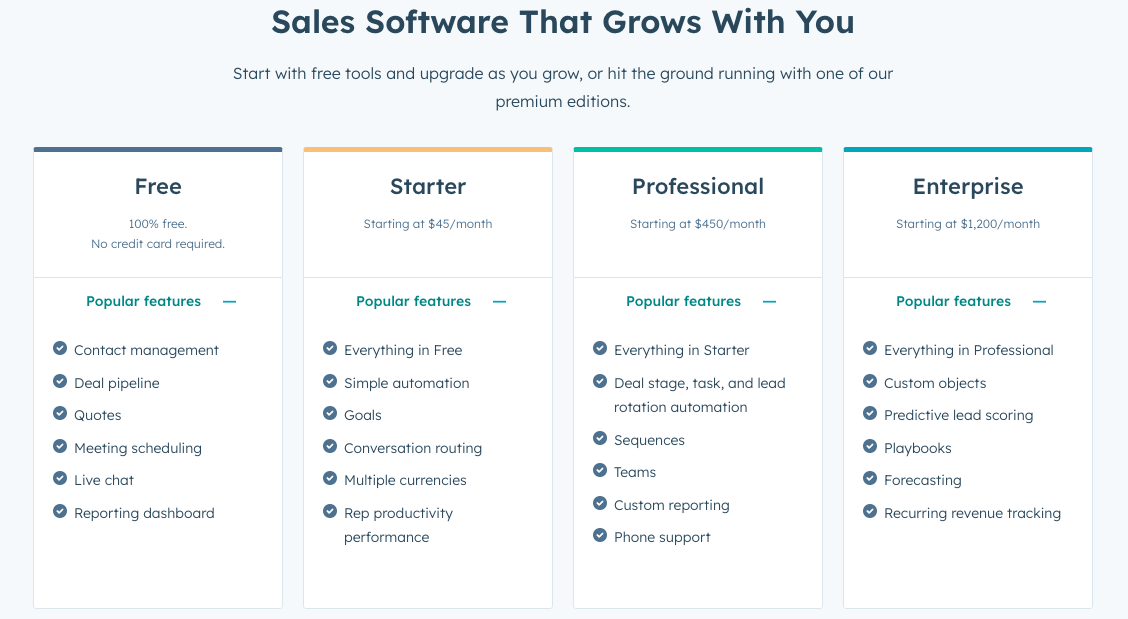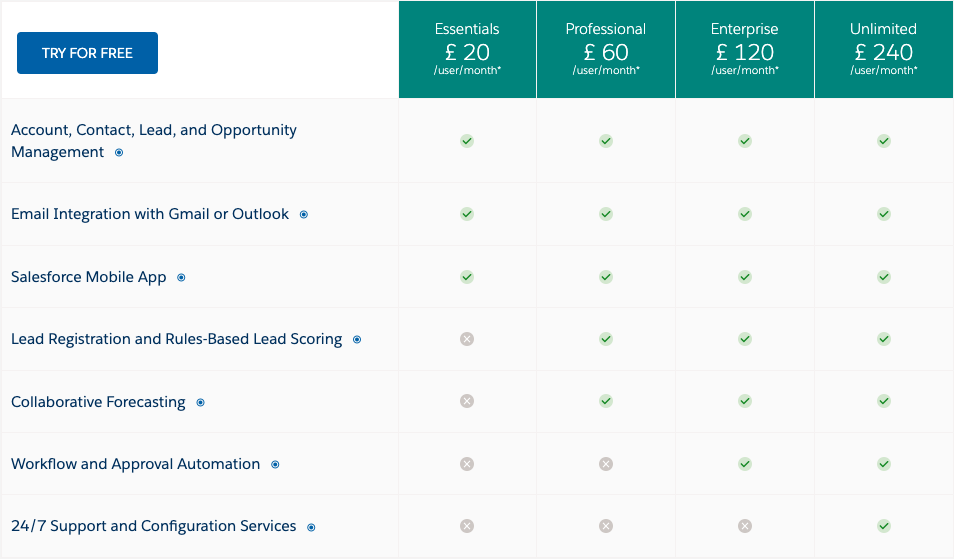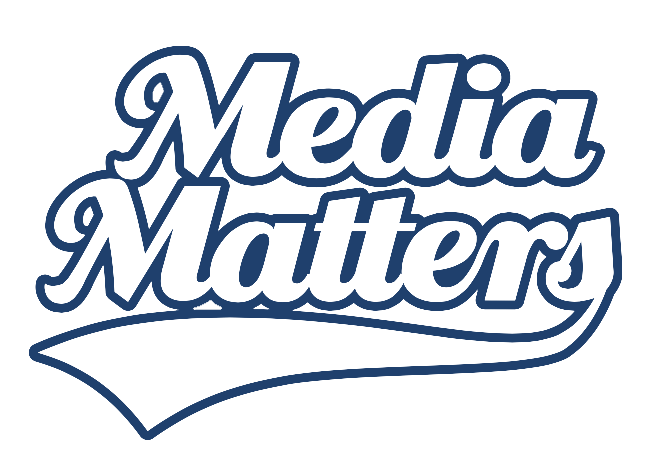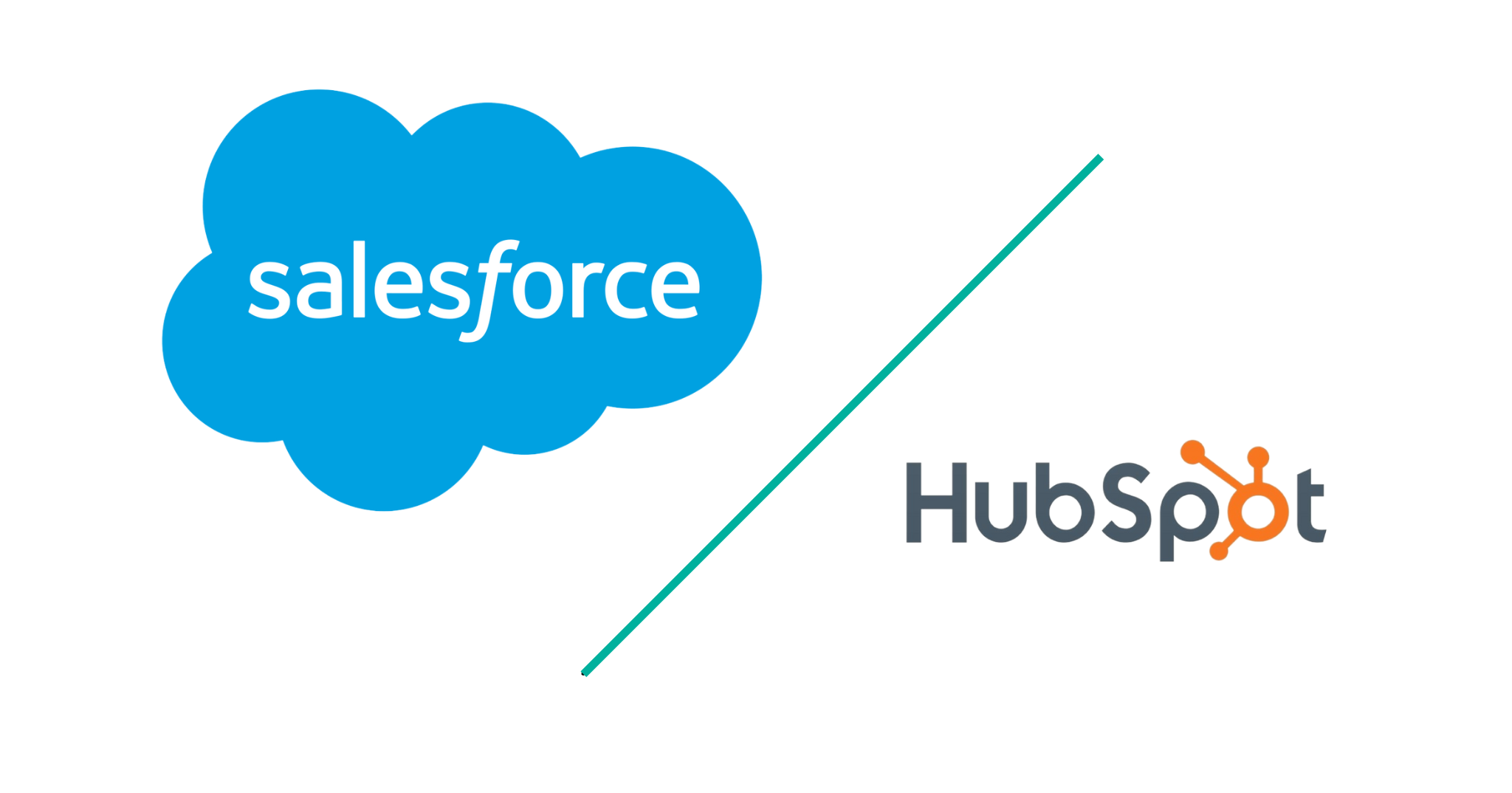A CRM, or Customer Relationship Management system allows a business to effectively manage and nurture its ever-evolving customer and prospect data.
There are several different options out there and it can sometimes be a bit overwhelming deciding which platform best suits your business’ needs. You’ve probably already done some research and waded through the options, but we’re guessing you’ve whittled it down to a shortlist of two – HubSpot and Salesforce. Did we guess right?
Okay, so we might have cheated a bit. We know that HubSpot and Salesforce are widely considered to be the two big players in this space and in our experience are certainly the two most popular options.
What’s more, although both have strong CRM capabilities, to use either for only CRM would be seriously limiting their potential. In fact, both not only come with full CRMs, but also marketing and sales analytics tools, as well as many advanced features designed to help businesses sell more, develop and track pipelines and forecast future sales. Both also have a keen focus on helping businesses provide excellent customer service.
But which is best for your business? Full disclosure, Media Matters is a HubSpot partner agency and we work with our clients on this platform, so our preference is pretty clear!
However, as both are popular options for businesses, we thought it would be worth pulling together a side-by-side comparison. Throughout this series of blogs, we are going to look at HubSpot and Salesforce from all angles and really dig deep into their functionalities, to help you understand which is the best choice for your business.
In this first blog (part one), we’ll cover how HubSpot and Salesforce measure up when it comes to sales and the sales pipeline.
Overview: HubSpot vs Salesforce
At a glance, the key difference between the two is that HubSpot is considered an inbound marketing platform, and Salesforce is best described as sales automation software.
Both are strong platforms that can provide teams with intelligent CRM solutions that support growth, but the two platforms are built in slightly different ways so there are some differences in how easy they are to use and integrate into your business.
HubSpot – Inbound Marketing Platform
Let’s dig in to HubSpot!
What is Hubspot and what does it do?
HubSpot describes itself best, as ‘a cloud-based customer relationship management (CRM) platform that helps scaling businesses grow better with sales, service, marketing and content management software. It provides a single source of truth that empowers your front office teams to deepen their relationships with customers and provide a best-in-class experience. HubSpot was built in-house on one code base, which means you get a unified experience that’s easier for your team to adopt and use’.
The HubSpot CRM platform includes a whole host of the tools and integrations businesses need for marketing, sales, content management and customer service. The idea is that each individual product can be used alone, but using them together produces the best results and highest efficiencies.
Chirstopher Sirk for crm.org describes HubSpot as ‘a lightweight and affordable marketing and sales tool’.
What awards has HubSpot won?
HubSpot isn’t short of customer accolades, winning several prestigious awards this year alone. It was named #2 Best Global Seller for 2022 by G2 for the second consecutive year in its annual Best Software awards. These awards rank the world’s best companies and products based on authentic, detailed and balanced customer reviews.
HubSpot’s Marketing Hub also earned the top spot in TrustRadius’ Ten Most Loved Products of 2022.
These just add to HubSpot’s growing list of awards. In 2021, HubSpot won 90 awards from leading review sites including G2, Gartner Peer Insights, TrustRadius, SoftwareWorld and others.
What do the industry’s big players have to say about it?
HubSpot has some pretty impressive advocates.
If you are contemplating HubSpotas your CRM, stop thinking about it and do it. We were a Salesforce-heavy organization and recently made the switch to HubSpot’s Sales Hub Enterprise. It’s an out-of-the-box solution that’s easy to use and intuitive, while also offering powerful automation tools and robust reporting. With HubSpot, we can see the complete lifecycle of a customer from lead to close, and our teams can own the customizations needed to get their job done. We have had 100% user adoption and couldn’t be happier.
Let’s take a look at some quick stats on Hubspot.
Turnover:
HubSpot’s revenue for the twelve months ending June 30, 2022 was $1.526 billion, a 42.26% increase year on year.
(HubSpot Asset Turnover 2012-2022 | HUBS | MacroTrends)
Number of staff:
3,387
Locations:
Unsurprisingly, HubSpot has locations all over the world, including Toronto, London, Dublin, Paris, Ghent, Bogota, Berlin, Tokyo, Sydney, Singapore, and many offices in the US.
Customers:
It boasts more than 150,000 customers in over 120 countries
Market share:
32%
Does HubSpot require businesses to invest in IT changes?
HubSpot can be described as SaaS (software as a service solution) which means businesses don’t need to make investments in additional or improved IT infrastructure or skilled people to benefit from all it has to offer. The idea is that HubSpot customers only pay for what they need and can stop at any time.
HubSpot does provide a great onboarding process and the tools it offers users are incredibly intuitive and easy to use. It has a variety of resources where users can ‘self-help’ and find informative articles, online tutorials and more to help answer their questions. The HubSpot community also allows users to exchange tips and tricks.
It also offers multiple popular app integrations including Gmail and Google Calendar, as well as apps built specifically for HubSpot and a website migration option to HubSpot CMS.
Ana Gotta for Zapier says that compared to Salesforce, ‘HubSpot has less of a learning curve and offers a more well-rounded marketing and sales tool at an accessible price point.’
Is HubSpot suited to businesses of all sizes?
Janette Novak and Rob Watts argue for Forbes that, ‘HubSpot is a user-friendly CRM that offers a limited-feature free plan, making it affordable for even startups. Paid plans come with feature upgrades that can handle most customer relationship management needs…HubSpot is an ideal CRM solution for small to midsized organizations.’
They also argue, ‘HubSpot trumps Salesforce when it comes to user-friendliness and low-cost plans.’
HubSpot also has more well-rounded marketing features for brands and businesses that are looking for an all-in-one sales and marketing tool. It offers a high level of convenience in this area, bundling tools for ease – for example, you can create and manage PPC ads within HubSpot. Although Salesforce also offers marketing features, they have to be purchased on a more individual basis, which can quickly stack up and might be out of reach for businesses with limited budgets.
Salesforce – Sales Automation Software
What is Salesforce and what does it do?
SalesForce describes itself as ‘a company that makes cloud-based software designed to help businesses find more prospects, close more deals, and wow customers with amazing service’.
Chirstopher Sirk for crm.org says, ‘Salesforce is a pioneer of CRM solutions. It really puts sales and ROI as top priorities of its pitch, and aims to be the number one tool in the salesperson’s kit.’
However, Sirk also says that Salesforce is considered by some to be, ‘a complex and expensive selling system’.
What awards has Salesforce won?
Salesforce was named by Gartner as a Leader in the 2022 Magic Quadrant for Sales Force Automation Platforms for the 16th consecutive year.
Salesforce was also ranked the #1 CRM provider by the International Data Corporation (IDC) in its latest Worldwide Semiannual Software Tracker. This is the ninth consecutive #1 CRM ranking for Salesforce.
The Ethisphere Institute, a global leader in defining and advancing the standards of ethical business practices, also recognized Salesforce as one of the 2022 World’s Most Ethical Companies.
To name but a few!
What do the industry’s big players have to say about it?
Here’s what just a few Salesforce customers have to say.
“With Salesforce we can move a lot faster and keep adapting to our customer’s needs. We’ve been able to develop very complex solutions in less than four months and deploy them across multiple geographies in under a year.”
KEMAL CETIN, VICE PRESIDENT OF IT, COCA-COLA ENTERPRISES
“We realised enormous gains with Salesforce: license processing increased 75%, commissions accelerated 89%, and revenue grew 40%.”
JOHN JOHNSON, SENIOR VICE PRESIDENT, LICENSING FOR ASCAP
“Salesforce helps us make the world more open and connected.”
TIM CAMPOS, CIO, FACEBOOK
Let’s take a look at some quick stats on Salesforce.
Turnover:
Salesforce’s revenue for the quarter ending July 31, 2022 was $7.720 billion, a 21.77% increase year-over-year.
Salesforce Revenue 2010-2022 | CRM | MacroTrends
Number of employees:
73,542
Number of customers:
150,000+
Locations:
Like HubSpot, Salesforce has locations worldwide, including Brazil, Norway, Israel, New Zealand, India, Japan. Its head office is in San Francisco.
Market share:
22%
Does Salesforce require businesses to invest in IT changes?
Salesforce compares well against HubSpot with its knowledge base for users and has a lot of self-service features, including interactive tutorials, videos and guides – as well as educational events. Much like HubSpot, Salesforce has a community portal where users can ask other users questions and find solutions.
However Hubspot argues that Salesforce’s ‘implementation and maintenance requires experienced and well-trained administrators. Most Salesforce customers need to bring in a consulting agency, hire one or more full-time admins, or have current employees become Salesforce administrators.’
Chirstopher Sirk for crm.org says that Salesforce is considered by some to be, ‘a complex and expensive selling system’.
Is Salesforce suited to businesses of all sizes?
Ana Gotta, in an article for Zapier comments ‘Massive corporations can—and do—benefit from either tool, but many prefer Salesforce because of these more advanced reporting capabilities.’
Janette Novak and Rob Watts argue for Forbes that ‘Salesforce offers an extensive feature suite that makes it a top CRM. However, due to its complex infrastructure—and relatively high price tag—Salesforce isn’t for everyone. The platform is best-suited to midsized to large businesses that need a powerful tool for managing sales leads and analyzing sales opportunities. Large sales teams will appreciate the collaboration and opportunity evaluation features that Salesforce offers.’
What is the difference between inbound marketing platform & sales automation software?
Both Salesforce and HubSpot’s want their clients to get a better view of their pipelines and reduce friction.
However, HubSpot is best described as an inbound marketing platform and Salesforce as a piece of sales automation software and that’s where the difference lies.
Sales process automation allows your sales reps to focus less on administrative tasks and more on connecting with and selling to your prospects and customers. It also ensures that your sales process is streamlined and uniform.
An inbound marketing platform could be described as partly a customer relationship management tool that helps businesses track communication with customers and leads, and also a tool that offers marketing automation, lead generation and lead nurturing.
As we’re focusing on the sales pipeline in this blog post, let’s look at HubSpot’s CRM sales function, Sales Hub and Salesforce’s Sales Cloud and see how they measure up.
CRM & Sales functions: Sales Hub vs Sales Cloud
Sales Hub
According to HubSpot, ‘Sales Hub is a ‘powerful sales software to help teams close more deals, deepen relationships, and manage their pipeline more effectively — all on one connected platform’.
It’s built within HubSpot’s all-on-one CRM platform and includes custom objects, sales engagement software, CPQ tools, conversation intelligence, and powerful sales analytics to help teams work more efficiently, save time, and grow revenue.
Let’s take a look at some key features.
Contact management:
Sales Hub offers a whole host of ways teams can streamline their sales efforts, giving them more time and flexibility to close deals.
For one, its mobile app allows teams to connect with customers from anywhere, and manage contacts, deals and tasks on the go. It means a team doesn’t have to be at their desks to manage leads.
Adding new contacts is super easy as users can just pull contact information from their inbox or web form submissions.
Sales teams make a huge number of calls. With Sales Hub, they can prioritise the days’ calls, make and record calls directly from their browsers, as well as automatically logging them in the CRM system for quick reference.
With Sales Hub, users can send emails, make calls, take sales notes, assign tasks, schedule meetings and add new deals, all directly within contact or company profile views.
Users can also turn their best performing emails into templates for other team members to use so they can personalise and optimise to get the best results.
Overall, Sales Hub’s contact management feature gives sales teams an overview of every interaction they’ve had with a prospect and then equips them with the tools they need to build better campaigns and close more deals.
Deal pipeline:
Sales Hub sets teams up for success when it comes to the deal pipeline.
It’s Deal Stages feature allows teams to drag and drop a deal along the sales process, from one stage to the next, as a sale progresses. HubSpot comes with seven default deal stages, but you can customize the stages depending on your business’s nature.
Teams can add deals, assign tasks, and monitor progress in dashboards to make tracking sales pipelines very easy.
You can also set up alerts so you are notified when a lead opens an email, meaning you can jump on closing that deal faster.
It also allows businesses to create a library of sales enablement content, from scripts to pricing guidelines to product cheat sheets and competitor battlecards. All of this useful content is just a click away from a sales team when they need it quickly to close a deal. If a team is growing too, these resources are fantastic for new starters to get up to speed quickly and of course, as refreshers.
Quotes:
Sending a professional looking quote as soon as you’re asked and when your product is top of mind is sure to help close deals faster. Sales Hub provides this function and more, including payment links within a quote so you can capture the sale efficiently, as well as the option for electronic signatures to help get deals over the line faster.
Lead scoring:
Professional and Enterprise Sales Hub users can qualify leads based on custom and editable criteria. They can also create customer score properties for contacts, companies and deals. With this tool, you can distinguish between the highest and lowest quality leads and personalise approaches accordingly.
Reporting:
HubSpot offers access to 90+ free pre-built reports that will help teams keep up to date with in-depth insights that will empower them to make important decisions. Teams can set up real time reporting to keep a close eye on progress and identify issues quickly.
Visibility of sales metrics is crucial and Sales Hub provides tools to allow any user real time insight into any stage of their pipeline performance, providing one source of truth in an easy-to-understand format.
Anything else?
HubSpot also offers something called ‘account-based marketing’ which is basically a range of collaborative tools that unite your sales and marketing teams, allowing deeper relationships to be built with customers and providing the ability to turn high value target accounts into customers.
Sales Hub and Marketing Hub are both part of HubSpot’s connected CRM platform. If you use both together, your data is automatically connected on the platform, enabling you to easily track your entire customer journey.
Hubspot offers loads of tips to help businesses set up its ABM strategy in which marketing and sales can use shared tools that unite them around the same data, in the same place. HubSpot’s ABM tools can help teams personalise content and tailor how they engage with stakeholders within an account, deepening relationships and helping build more authentic connections with stakeholders.
Sales Cloud
Salesforce describes Sales Cloud as a ‘cloud-based application designed to help your salespeople sell smarter and faster by centralizing customer information, logging their interactions with your company, and automating many of the tasks salespeople do every day’.
Contact management:
Sales Cloud lets you organise your contacts in a variety of different ways, as well as offering demographic data which can be sorted, grouped and filtered so teams can easily group and target key customers and prospects.
It offers a total 360-degree view on each contact, including detailed communication histories and even social content from customers or target customers so sales teams can understand what they are saying about products or services.
Like Hubspot, the Salesforce app means teams can access all of their contact and account data on the go – or as they walk into an important sales meeting.
Deal pipeline:
It’s all about real-time visibility of your team’s pipeline and forecast with Sales Cloud. It offers a great level of insight, as well as quick filters and suggested KPIs that allows teams to make quick adjustments as well as using data insights and predictive AI to clarify business decisions that drive revenue.
The ‘activity timeline’ for each customer’s activity holds critical details, such as who your sales team might be competing against, what stage the deal is in and what you need to do to close it. Teams can track all associated activities in real time and even get alerts when a new action is required.
Deals can move through the pipeline fast, and things can change in an instant. With Sales Cloud, you can create automatic email alerts for deals over a certain size, auto-assign tasks as a deal moves through the different stages, and much more.
Quotes:
Like Sales Hub, you can quickly create quotes with Sales Cloud. You can automatically populate a quote with relevant customer details, generate a PDF from approved templates, and email it to customers directly.
You can also track which products are part of a deal, and their quantity, price, quoted price, and product codes. You can even set up revenue and quantity schedules to mirror payment and delivery terms.
Lead scoring:
Sales Cloud allows you to set up automatic lead scoring as well as routing so they go to the right team member to follow up, at the right time.
You can also track leads to see where they came from and understand relevant insights that sales teams can act on quickly.
As well as lead scoring, Sales Cloud offers lead grading by which leads are automatically evaluated with a letter grade based on a number of factors. Grading leads ensures that the leads being passed from the marketing team to sales match a company’s ideal profile.
Reporting:
With Sales Cloud, you can track team or individual sales staff’s performance with various dashboards and reporting tools that allow quick changes to be made, if needed.
Sales Cloud comes with a range of sales reporting tools that help ensure your information is always up-to-date. Its highly customizable sales dashboards are easy to create and navigate so the information you need is easily accessible at all times.
Sales Cloud generates custom sales reports with a few clicks. You can drag and drop fields, filters, groupings and charts to curate the report you want and need. Everything is presented in clear and easy-to-understand graphs and charts.
Anything else?
The lead scoring and sales forecasting power of Einstein, Sales Cloud’s AI sales assistant is great, as is the automated activity tracker.
Einstein offers relevant ‘coaching’ tips, to sales teams based on past proven success rates. Einstein activity capture syncs your email, calendar and Salesforce account and Einstein Account Insights offer deeper business development goals.
The scope and degree of sales tools and tips given by Einstein really give a salesperson an edge.
Plans & Features
One important point of comparison between Sales Hub and Sales Cloud is their pricing structure and it’s something you’ll need to look closely at to decide which is best for your business. The difference in pricing structures and determining whether you will see ROI in your software investment, might actually end up being the deciding factor!
Before we delve into the ins and outs, there are a few key things to be aware of.
Sales Hub (HubSpot) offers a free plan that includes (amongst other things), CRM, live chat and landing page creation, as well as customer service ticketing. Sales Cloud (Salesforce) does not. However, there is a free 30-day trial available with Sales Cloud if you want to test it out.
What’s more Sales Hub offers free usage to those who need reporting visibility, but do not require access to the day-to-day functionality of sales tools
Sales Cloud uses a price per user structure, which can get expensive if you have a large or growing team. Sales Hub offers tiered plans that incrementally increase the number of users, marketing contacts and available features as the price goes up.
We’ve broken down the plans and features for both Sales Hub and Sales Cloud in more detail below.
HubSpot Sales Hub Pricing

Salesforce Sales Cloud Pricing

So, which is best for your business?
Both are clearly very strong options and many features are offered from both providers.
The main nuance and the deciding factor when weighing up the two, should be whether you are looking for an inbound marketing platform – software that can really join your marketing and sales teams together for a greater impact, or whether you are looking for a super powerful and insightful sales automation system that will streamline your sales process to the nth degree.
HubSpot pips Salesforce when it comes to overall ease of use and of course the free versions it offers. Salesforce’s high price tag and complexity might persuade small to mid-size businesses and start-ups to choose HubSpot.
However, larger businesses that need a really powerful tool for managing sales leads and analysing sales opportunities might find that Salesforce is the one for them.
Ultimately, it’s up to your individual business needs.
Final word from us
Media Matters is a certified HubSpot Solutions Partner and we use this platform daily to run automated and inbound marketing campaigns for our clients. We like it so much we use it for our own sales and marketing too!
Our Managing Partner and HubSpot expert, Karen, is a huge HubSpot advocate.
“Anyone that knows me knows that I’m a huge advocate for HubSpot. Not only because it is a fantastic marketing automation platform, but because it promotes the idea of a flywheel over a funnel – something that I’ve been fully behind since I was introduced to the idea 4 years ago!
A funnel is great for collecting leads, but a flywheel never loses momentum, it’s always moving, picking up speed and supporting growth. Visualising your business model as a this flywheel helps you to make more customer-focused decisions for your business – because they should be at the heart of everything you do.
If you are interested in finding out more about how your business’ inbound marketing campaigns can be improved with HubSpot, give us a call or drop us an email. Let’s work together to ensure your marketing is generating the very best results.





